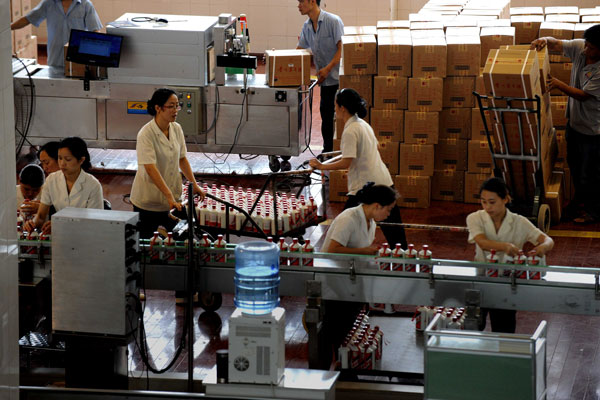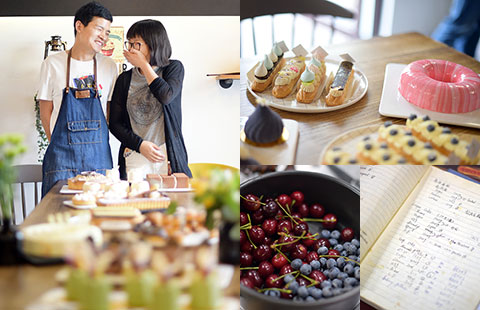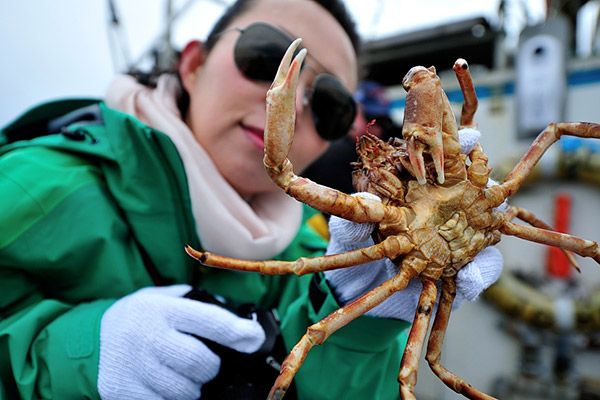Bright future for white spirits
|
 |
|
Workers packing Moutai at a workshop belonging to Kweichow Moutai Co in Zunyi city, in Southwest China’s Guizhou province. In China, sales revenue from white spirits is expected to grow from 110.9 billion yuan ($18 billion) in 2007 to 926.5 billion yuan in 2016, according to Frost & Sullivan, a US-based market consultancy. Provided to China Daily |
But opinions differ on length of time to deal with difficulties
The Chinese liquor industry is expected to have impressive growth potential in the future despite the present downturns caused by the government's crackdown on luxury banquets, said Frost & Sullivan, a US-based market consultancy.
According to a recent report by the consultancy, the white spirit production will reach 17.05 billion liters in 2016 from 4.94 billion liters in 2007 with a compound annual growth rate of 14.8 percent. Sales revenue from white spirits is expected to grow from 110.9 billion yuan ($18 billion) in 2007 to 926.5 billion yuan in 2016, with a compound annual growth rate of 26.6 percent.
The report attributed the robust growth potential to the following factors. First, the white spirit industry is closely associated with the macroeconomy and currently China is still at a stage of rapid economic development as well as rising disposable incomes.
Second, multi-sales-channels marketing strategies have been vigorously used by domestic alcohol makers, such as group purchases and online sales, which have been greatly welcomed by younger customers.
According to the report, Chinese white spirit is one of the seven renowned distilled spirits in the world. Sichuan, Guizhou, Shaanxi, Anhui and Shanxi provinces are the most recognized origins of it in China. Each province has its own special drinking habits and brands. There is Wuliangye in Sichuan, Moutai in Guizhou, Xifeng in Shaanxi, Gujing in Anhui and Fenjiu in Shanxi.
Sichuan is the most high-yielding province in China. In 2011, white spirit output in Sichuan made up around 30 percent of total output in China and has maintained a compound annual growth rate of 38 percent for nearly five years. There are numerous famous white spirit brands in Sichuan, including Wuliangye, Luzhoulaojiao and Swellfun (Shuijingfang).
Shandong is anther traditional high-yielding province, said Frost & Sullivan. In 2011, the output of baijiu in Shandong made up around 10 percent of the total output in China, with stunning revenue of around 30 billion yuan. Taking Confucian Family Liquor (Kongfujiajiu) as an example, since 2007, its sales volume has maintained an annual growth rate of 100 percent.
But, there are also some restraints on the industry, said Frost & Sullivan, such as local governments' protection of local brands, which jeopardizes fair competition in the market, as well as a lack of product research and innovation capabilities, as the new generation of young customers seek personalized and diversified products.



















